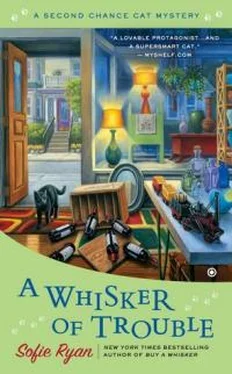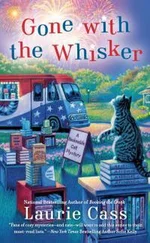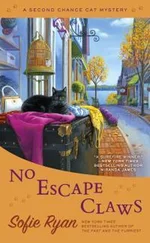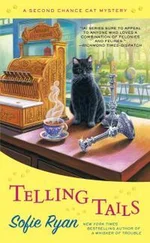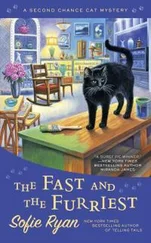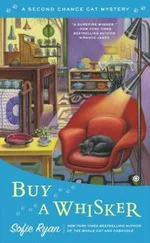We were shown to a table near the center of the main dining room at the inn. Silverware gleamed against the crisp white napkins and pale blue tablecloth. Liz had timed our arrival so we’d be at the table when Channing Caulfield arrived.
He was right on time. After I’d agreed to join Liz on this luncheon fishing expedition, I did some online research on Caulfield. He was a self-made man who’d gone to college on scholarship when he was sixteen.
Channing Caulfield was of average height, although he walked with the presence and confidence of a much larger man. He had silver hair—lots of it—combed back from his face, a ready smile and blue eyes that it seemed petty to call beady, although that was the first thought that came to my mind.
Liz got to her feet as he reached the table.
“Liz, it’s good to see you,” he said, leaning in to kiss her cheek. “You look beautiful, as always.”
“Thank you for coming,” she said. She turned and smiled at me. “This is Isabel’s granddaughter, Sarah Grayson.”
He inclined his head in my direction. “Please call me Channing,” he said. “It’s a pleasure to meet you, Sarah. How’s your grandmother?”
“She’s well, thank you,” I said.
Liz made small talk while we looked at our menus and ordered. I took advantage of the opportunity to study Caulfield. He was very much a gentleman—smooth, polished and polite. I noticed that he was watching us and everything else that was going on in the restaurant’s dining room.
I had no doubt that this was the man Teresa had seen watching Edison Hall’s house the morning Ronan Quinn died. The hair was right, and so were the eyes and the slight jowls along his jawline. As he smiled pleasantly across the table at me, I had the sudden urge to lean over and ask him directly what he’d been doing that morning. Then I remembered that the whole reason I’d come along was to stop Liz from doing something exactly like that.
Caulfield added cream to the coffee our waiter had brought. I noticed that he didn’t have the soft, smooth hands you’d expect to see with someone who had worked in an office. His were lined with prominent joints. “So you’re interested in the harbor-front development from an investment perspective?” he said, directing his question at Liz.
She nodded, reaching for her tea. “If this proposal comes to pass, those two buildings we own the mortgages on will be sold. I’ve been thinking about putting some of that money back into the development. Seaward Properties is still looking for investors.”
“Have you read their prospectus?” he asked.
“I have,” Liz said. “It looks solid, but I know very little about Jason Cavanaugh himself.”
I let them talk while I watched and listened and marveled at how knowledgeable Liz was. I suspected she could easily have turned the Emmerson Foundation’s finances around without Channing Caulfield’s help.
When our food arrived Caulfield turned to me. “I’m sorry, Sarah,” he said. “I’ve been ignoring you.”
“No, you haven’t,” I said. “I’ve learned a lot listening to you and Liz talk.” I smiled at the waiter who had just refilled my cup.
“You’re interested in moving your business downtown if the development goes through?”
“I’ve heard the pitch and I have the proposal.”
He narrowed his blue eyes. “What’s making you hesitate?”
“The cost. And parking. We get a fair amount of business from tour buses. They can pull off the highway and reach our current location easily. And right now I have a pretty big parking lot.”
Caulfield unfolded his napkin and placed it in his lap. “Right now you’re a destination shop. If you move your business you’ll be one of many businesses in the same area competing for customers.”
I smiled and nodded. Out of the corner of my eye, I saw Liz doing the same. He was sharp. “Yes,” I said. “I’m not convinced the increased volume of people walking by our door will offset the increased competition for dollars in the same area.”
“What’s your weekly customer volume during the tourist season?” he asked.
I glanced at Liz, who nodded. I gave Caulfield the number. He frowned, holding up one hand as he did some kind of mental math.
My fish cakes were only half gone before he determined that moving Second Chance didn’t make sense. It was the same conclusion I’d come to when I originally considered the idea, back when North by West was behind the harbor-front development idea, but it was nice to have confirmation of my calculations.
“You’re going to be clearing out Edison Hall’s property, aren’t you?” Caulfield asked, raising a finger in the direction of our waiter, who seemed to appear at the table with a full cream pitcher almost by magic.
“We started this morning,” I said, putting a little more spicy salsa on my plate. It was so good I could have just eaten it with a spoon directly from the little glass bowl, but Mom and Gram had taught me better manners than that. And I wasn’t sure that Liz wouldn’t smack me with her own fork if I tried it.
“If you come across a train layout, would you call me?” he asked.
“You mean a model train?” I said. I knew that he did, but I was stalling. He had to be talking about the steam engine and cars Elvis and I had found just a few hours ago. Interesting coincidence.
“What would Edison Hall have been doing with a toy train?” Liz asked. Under the table her hand squeezed my knee, her way of telling me, Don’t say anything!
I put my hand on top of hers to let her know I’d gotten her message.
“Model train, Liz, not a child’s toy,” Caulfield said.
“There’s a difference?” Liz said, raising her eyebrows.
“Yes, there is,” I said, gently squeezing her hand. I wasn’t going to give anything away, but I wasn’t going to let this chance to ask questions slip by. “Model railroading is a very popular hobby. People collect engines and cars, build layouts with track and scenery and run their trains.”
“So you think Edison Hall was into model railroading?” There was an edge of skepticism in Liz’s voice.
Aside from the Marklin engine and cars, there didn’t seem to be anything in the house to suggest the old man had been a hobbyist. There was no track, no layouts. I wondered if the pieces were part of another collection. Along with the stacks of National Geographic magazines in the house, there were dozens of blue glass electrical insulators in the garage and what looked to be maybe half a dozen weather vanes in the backyard. I suspected that Edison Hall was a man with the collector gene.
“I know he was into model railroading,” Caulfield said, setting down his fork. “Years ago we were in a train club together.”
“You’re joking,” Liz said.
He gave her his smooth smile. “No, I’m not. My father worked for the Maine Central Railroad. And Edison was a railroad man himself.” He turned back to me. “I don’t know if you know very much about model trains, Sarah.”
“I recognize Lionel,” I said. “That’s about it.”
“I’m looking for a steam engine and several cars made by a German company named Marklin.”
It was too big a coincidence. Caulfield must have realized we’d find the model train cars pretty quickly. I suspected that was why he’d said yes to Liz’s lunch invitation so easily and not just for the chance to charm her.
“I’m sure Ethan would be willing to sell you whatever you’re interested in from Edison’s collection, that’s assuming we find one.” I didn’t like to lie, but since we hadn’t found a collection yet, I told myself I wasn’t. For the most part.
I speared the last bite of fish cake, dipped it in the salsa and ate it.
Читать дальше
